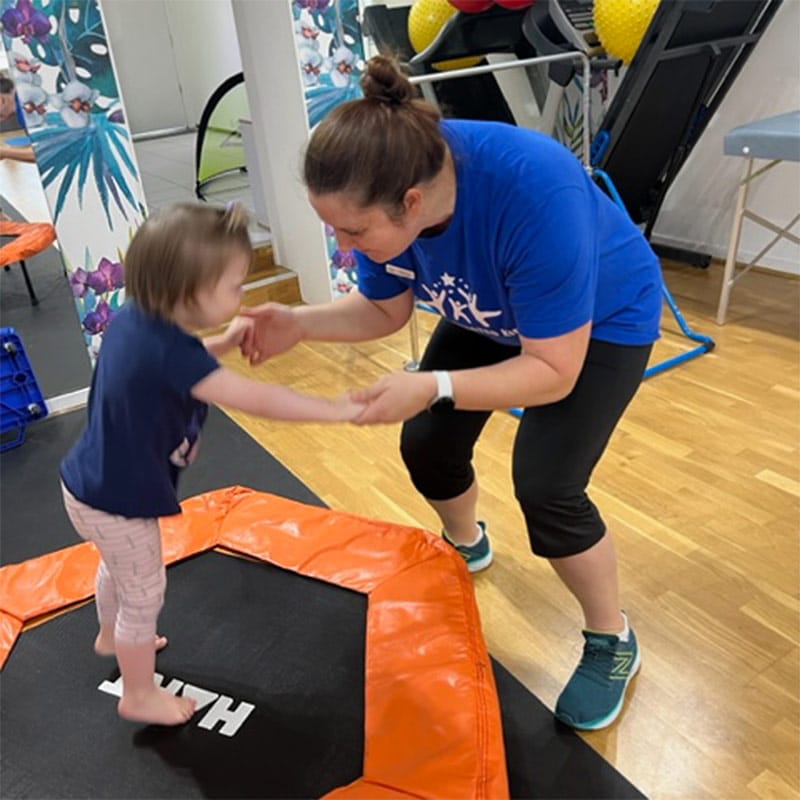Early Intervention Therapy
Support for young children who have a disability or developmental delay as early in their lives as possible.
Early Intervention Therapy
Support for young children who have a disability or developmental delay as early in their lives as possible.
What Is Early Intervention Therapy?
Early intervention offers the necessary support to young children who have a disability or developmental delay as early in their lives as possible.
Paediatric Exercise Physiologists are specialists in formulating tailored exercise programs to help children improve their mobility, health and fitness. Early intervention therapists recognise that families are the most knowledgeable about their children, and they work to provide them methods to use with their children in daily routines and activities at home and in the community to enhance their quality of life.
The ECEI program through the NDIS assists families with children aged 0-6 by providing advice and access to supports within the local community. If your child is aged 0 – 6 and has concerns with their development or a disability, they may be eligible to receive support from the NDIS through the ECEI program.
Some children who receive early intervention may not need long-term support.
The importance of early intervention: neuroplasticity
The human brain is plastic throughout life, but the majority of studies show that the first three years of life are when it is most adaptive and that 90% of neurodevelopment occurs by age 5. At birth children are born with around 100 billion neurons. From here the human brain experiences enormous growth, with the emergence of new nerve cells and the rapid formation of new neural cell-to-cell connections. A child’s ability to explore and learn about their environment through the senses of smell, sight, taste, hearing, touch, and proprioception is what drives the growth and sprouting of these new neurons.
Early intervention takes advantage of the first three years of life’s remarkable capacity for brain growth and change. The benefit of starting services early on is that it allows for intervention when a child is at a prime age to react relatively fast to stimulus that promotes brain development and when the brain has its best capacity for neural plasticity and change.
How our Paediatric Exercise Physiologists can assist in Early intervention therapy?
Neurons are lost, changed, or damaged, which results in impairment, when the brain is injured or grows improperly. The good news is that a brain injury can be compensated for by the brain trying to forge new connections around it, letting a healthy section of the brain take control, relearning or by reinforcing a healthy link that already exists.
This is where your Exercise Physiologist can help. Your exercise Physiologist can assist by providing exercises that harness neuroplasticity through practice and repetition, the brain will create and reinforce new neural pathways to learn new skills and habits.
Weyandt, L. L., Clarkin, C. M., Holding, E. Z., May, S. E., Marraccini, M. E., Gudmundsdottir, B. G., Shepard, E., et al. (2020). Neuroplasticity in children and adolescents in response to treatment intervention: A systematic review of the literature. Clinical and Translational Neuroscience, 4(2), 2514183X2097423. MDPI AG. Retrieved from http://dx.doi.org/10.1177/2514183×20974231[1]

